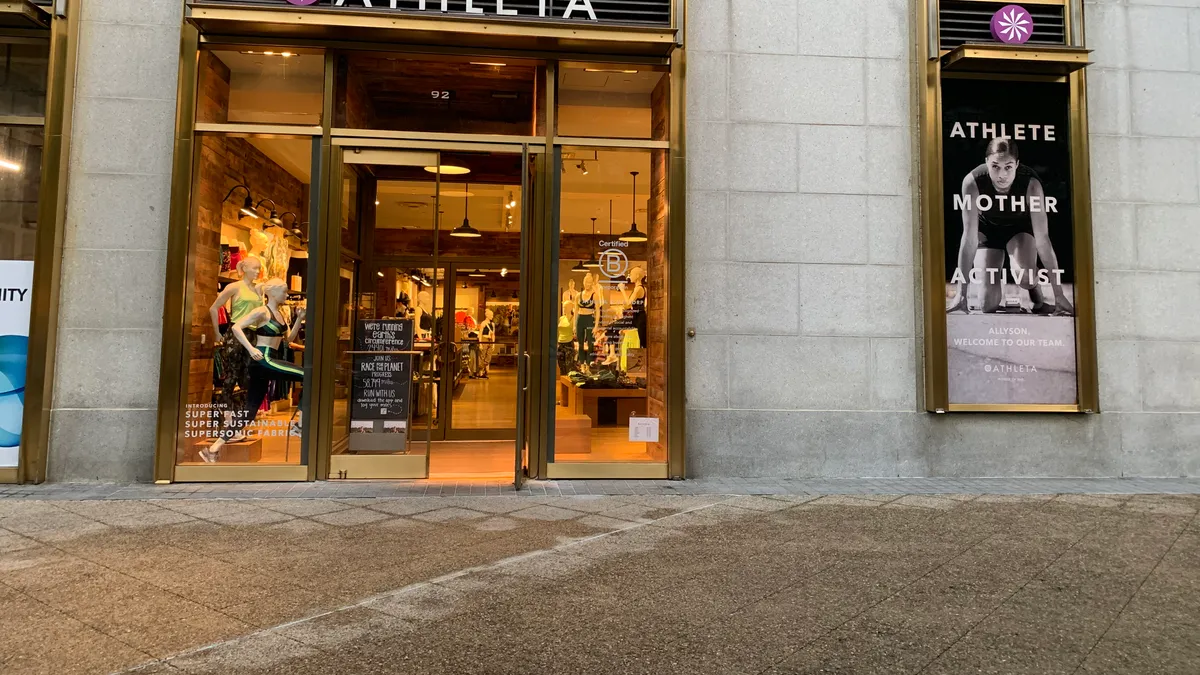Correction: An earlier version of this story referenced McKinney's "Art of the Heist" campaign for Audi as an example of a success story to come out of the agency's Ten Percent program. That is incorrect: The "Art of the Heist" was not part of the program. We have updated the post with a new example.
The skill set that recruiters look for in marketers is evolving as new channels, technologies and platforms become available and necessary to use.
With the rise of digital and a growing demand for data-driven marketing, hiring managers are being challenged to reconsider what skills—quantitative and creative—a recruit needs in order to succeed as a digital marketer.
What the numbers are saying
If a job seeker wants to get into digital marketing, there are opportunities abound.
In terms of job availability, the U.S. Bureau of Labor Statistics (BLS) paints a rosy picture for marketers: Employment is predicted to rise 7% by 2024 and job security is strong as marketing is important to most companies' revenue.
Separate research conducted by Fractl and Moz (in which they mined over 75,000 job listings posted on Indeed.com during June 2015) found that marketing skills are in fact in high demand—but hiring managers are struggling to find talent. “Many believe this rapid rate of change has caused a marketing skills gap, making it difficult to find candidates with the technical, creative, and business proficiencies needed to succeed in digital marketing,” Kelsey Libert wrote in a blog post on the report.
Libert said that the analysis of LinkedIn profiles showed there are plenty of recruits touting specific digital marketing skills, but perhaps the reason recruiters are having trouble filling roles is because of a lack of candidates with at least surface-level knowledge of other aspects of digital marketing. From their analysis, they found that the 20 most common digital marketing jobs being advertised on LinkedIn required candidates with a wide range of skills, from SEO and social media to Google Analytics and content marketing.
In terms of worth, Fractl and Moz’s research uncovered that the most valuable skill a marketer can possess is SEO. Job titles containing “SEO” had an average salary of $102,000, while jobs with “social media marketing” saw that number fall to $51,000.
“The new marketer combines operational and data skills with a grasp of the big picture,” according to a report by The Economist Intelligence Unit and Marketo. Emphasis was placed on these qualities: digital engagement and technology (39%), strategy and planning (38%), data analysis (32%), customer experience (27%), advertising and branding (26%), and creative and graphics (16%).
Technology and the Internet have created a rift between what marketers used to do and what marketers are needed to do today. Increasingly, the numbers imply that the ideal candidate is a hybrid who is strong in a number of areas, but still has a distinct specialty. One candidate might be best suited for analytics, another for social media, but both need to have a grasp of the work being done across their company and be able to collaborate on it.
Breaking down walls
If agencies want to attract talented young marketers, they may need to rethink their work environment and culture.
In a recent New York Times story—the aptly titled “Ad Agencies Need Young Talent. Cue the Beanbag Chairs.”—the author reports that ad agencies are failing to find “young creatives” and the culprit behind the shortage may be the booming tech industry because of the startup culture these companies provide. In a millennial-driven media landscape, where happy hours and, yes, bean bag chairs prevail, all companies, not just ad agencies, are needing to revamp their approach to secure and retain talent.
At the Deustch marketing agency's offices in New York City, for instance, candy bowls and jars line the countertops, and next to the well-stocked kitchen, there is a coffee bar where a barista whips up delicious drinks for free. And at digital agency McKinney, both their New York and Durham, N.C., campuses boast an open-concept layout that's ideal for constant collaboration.
“If there's one word that comes to mind when I walk in here every day, it's community,” Sue Roche, chief talent officer at McKinney, told Marketing Dive.
Between the bleacher seats and the presentation theater, every space in the former American Tobacco Company plant that McKinney has using since 2004 was designed with the purpose of creating an environment ripe for interaction.
Though the open-concept office trend has its critics, Roche said it has been great for impromptu creative sessions and greater transparency overall. But as the Times article points out, simple “cosmetic changes” aren’t enough to bring in the top marketing talent of tomorrow.
Solving the skills gap
As digital platforms and channels evolve, current and future marketers will need to prioritize learning in order to stay on top of technological changes. Agencies and companies looking to attract and retain top talent would benefit from helping them do so.
For its part, McKinney has worked hard to create opportunities for learning and development for its employees with initiatives, such as “the McKinney Ten Percent,” through which employees are able to set aside 10% of their time to creative innovation unrelated to client business.
“If I were to look at the type of people who come here, the words that come to mind are unconventional provocateurs, digitally-centered entrepreneurs, people who are about community,” she said, explaining that the McKinney Ten Percent program has produced such success stories as SPENT, an online game about surviving homelessness that Adweek called "a jarring experience" and has been played over 5 million times worldwide since its 2011 launch.
Marketers today are having to defy boxes with a combination of skills and qualities that allow them to be agile team players. Thanks to digital's accelerated evolution of marketing roles, they are having to learn and adapt at a fast pace.
For firms that can’t literally break down the walls in their offices, other resources exist, such as online learning tools that can help both old and new hires boost their digital and data skills.
“Research has shown that marketing has one of the most pronounced digital skills gap of any industry. In fact, 90% of marketers consider themselves under-skilled in digital marketing functions,” VP of People Joris Luijke at online learning and workforce training company Grovo told Marketing Dive. “Leveraging training that’s short and engaging—that people want to use—is the key to improving employee performance and skills, keeping them ahead of the learning curve.”
Some of the most popular topics among Grovo's marketing clients spotlight the kind of expertise companies are looking for in marketers: user experience, mobile production, search and SEO, and social media. Saatchi & Saatchi, DDB Worldwide and MSLGroup are among the agencies who have signed up to use Grovo’s learning tools.
Takeaways
Marketing is going through a transformation and that is changing what recruiters look for.
The EIU/Marketo survey urges marketers to be well-acquainted with the tools and platforms where their audiences live, such social media and mobile. The BLS forecast notes that as more advertising moves to digital, hiring managers will increasingly seek candidates for roles tied to social media and live chats—both digital-first platforms.
“One of the criteria for us in hiring anyone in this agency, from talent management to finance to creative, is that they have a digital thread running through them,” McKinney's Roche said.
As divisions between departments dissolve, the work that marketers do is becoming more integrated: Formerly disparate teams from IT to design and sales are having to work more closely with marketers. Current and prospective employees must be agile, learn quickly and be team-oriented.
It’s not that digital marketers shouldn’t have specialized skills—it’s that they should be able to see how the varying areas of digital marketing work in unison. In the current digital marketing climate, perhaps the best recruit will be the one who can help bridge the gap.


















